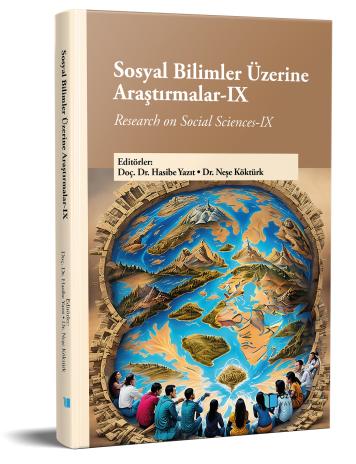
A Review on Moving the Education System to New Media Environments after Covid-19
Chapter from the book:
Yazıt,
H.
&
Köktürk,
N.
(eds.)
2023.
Research on Social Sciences- IX.
Synopsis
be experienced deeply in all areas of life. In this context, education systems are also considered as a part of social life, and the role of digitalization comes to the fore while evaluating the examination systems related to the future of students on a country basis during the pandemic process.
The COVID-19 pandemic has caused significant changes in the field of education and accelerated the transfer of educational methods to social media environments. The pandemic caused traditional classroom environments to be replaced by online education platforms with the closure of schools around the world. In this period, social media has gained great importance as a communication, content sharing and learning tool for educational institutions, teachers and students. However, this transformation has also brought some challenges. Issues such as access problems, students not being able to participate in offline education, technical problems, and the difficulty of maintaining student engagement in online education have also been experienced.
This study was conducted under the title of "A Review of the Post-COVID-19 Transformation of the Education System to New Media Environments". The focus of the research is to evaluate the solutions developed against the challenges caused by the pandemic in the field of education. The experiences of different countries such as China, Canada, South Korea and Germany were analyzed in this context. The effects of COVID-19 on the education system have revealed the limits of traditional education methods and emphasized the need for new media opportunities to play a more effective role in education. The study focused on the online education platforms, digital tools and learning methods implemented in the education systems of these countries, as well as how teachers and students have adapted to this era. As a result, the transition of the education system to new media environments in the post-COVID-19 period is analyzed in the light of international examples and offers important perspectives on shaping future educational methods.

